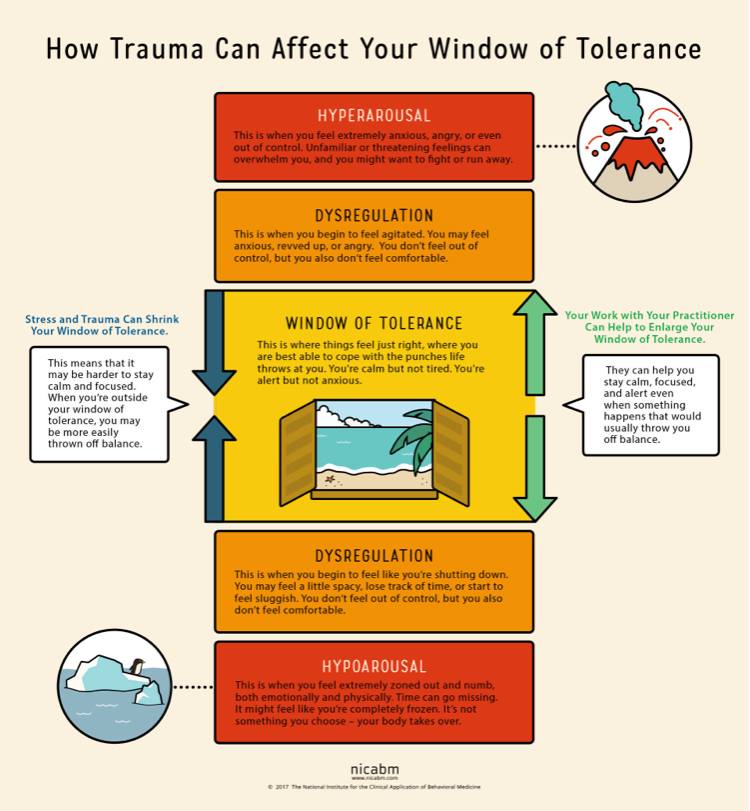
Everyone has a response to trauma. Our brains are designed to keep us safe. When we are threatened, a trauma response occurs to help us get through it. However, sometimes our brains can also perceive threat when no danger is present. It is like you are on high alert.
The window of tolerance is a concept developed by Dr. Dan Siegel. The window of tolerance is the zone where intense emotional arousal can be processed in a healthy way, allowing people to function and react to stress or anxiety effectively and to function in everyday life. When you are operating within this zone, you can effectively manage and cope with your emotions.
When you have experienced trauma, it can be difficult to regulate your emotions effectively and your window of tolerance narrows. When this happens, it is often difficult for you to regulate emotions and deal with stressful situations.
When you have experienced extensive trauma, it may be difficult for you to stay grounded in the present. Your past experiences of trauma may feel vivid and intrusive. You may also spend a lot of time worrying about the future.
When you constantly are re-living your past trauma, you may feel like you are continually on alert to detect threats or things that may cause you hurt or pain. The stress of a traumatic memory or trigger may cause you to be pushed out of your window of tolerance. Even seemingly minor stressors may cause you to dissociate, escape, get angry, or feel anxious.
You may feel like you are in a defence mood – hyperarousal or hypoarousal. Hyperarousal is a state of excessive activation/energy often in the form of anxiety, panic, fear, hypervigilance and/or emotional flooding. You may have heard this referred to as the fight, flight, freeze response. Hypoarousal is a state of exhaustion, depression, flat affect, numbness, disconnection and/or dissociation.
Trauma-informed sexual assault counselling can help you to learn skills to manage anxiety and stay within your window of tolerance and can also help to widen your window of tolerance over time.
